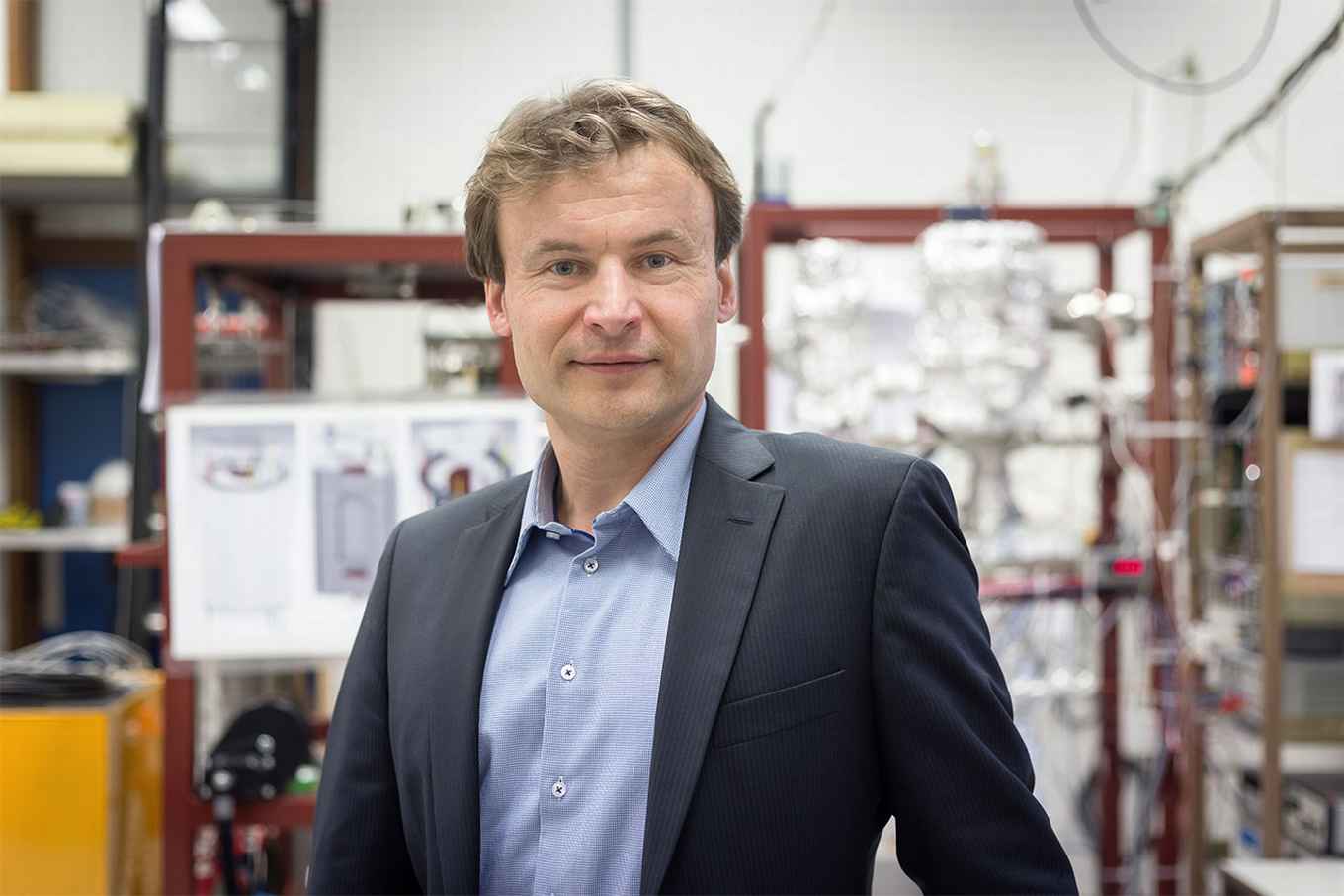Patrick Decowski, professor of Experimental Astroparticle Physics
13 April 2015

Patrick Decowski conducts experimental research in the area of astroparticle physics, at the intersection of particle physics and astrophysics. His main current interests are the composition of dark matter and the properties of neutrinos. To conduct his research, he participates in experiments in deep underground labs in Italy and Japan. In the Italian Apennines, Decowski is working to unravel the particle composition of dark matter in the XENON project. Dark matter is an as-yet-unknown substance that constitutes over 85% of the universe's mass. Decowski wants to observe dark matter particles colliding with ordinary matter and discover their properties using extremely sensitive liquid xenon detectors. In the near future, the XENON project will begin operating the XENON1T, the most sensitive dark matter detector on earth.
Since 2002, Decowski has also been working in the Japanese Alps on the KamLAND experiment, which has revealed and precisely measured a number of previously unknown neutrino properties, such as neutrino oscillations. The KamLAND detector is currently in a phase that aims to discover whether neutrinos could be their own antiparticles or 'Majorana particles' through a process known as neutrinoless double beta decay. If so, this would shed light on a number of areas, including the standard model of particle physics and cosmology. Dark matter particle collisions and neutrinoless double beta decays are extremely rare events and sensitive detectors constructed of very low radioactivity components are required.
Decowski has worked as an associate professor at the UvA since 2011. He obtained his PhD at the Massachusetts Institute of Technology (MIT), after which he was at the University of California, Berkeley for eight years. After returning to the Netherlands in 2009, he served as a senior scientist at the National Institute for Subatomic Physics (Nikhef). Still affiliated with Nikhef, Decowski is the programme leader of the Dark Matter research programme of the Foundation for Fundamental Research on Matter (FOM). He is also a visiting scientist at the Kavli Institute of the Physics and Mathematics of the Universe (IPMU) at the University of Tokyo. He has received various research grants, including grants from the FOM and the Netherlands Organisation for Scientific Research (NWO).